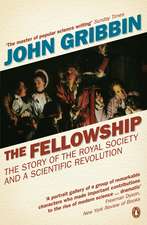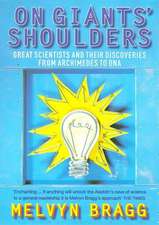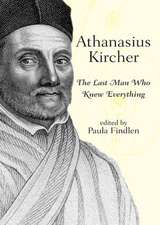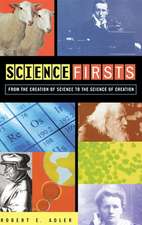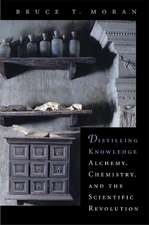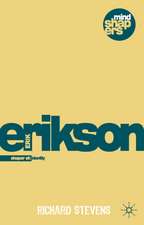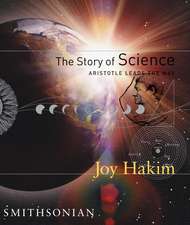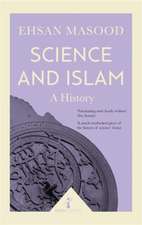Making Marie Curie: Intellectual Property and Celebrity Culture in an Age of Information: science.culture
Autor Eva Hemmungs Wirténen Limba Engleză Paperback – 7 noi 2016
In many ways, Marie Curie represents modern science. Her considerable lifetime achievements—the first woman to be awarded a Nobel Prize, the only woman to be awarded the Prize in two fields, and the only person to be awarded Nobel Prizes in multiple sciences—are studied by schoolchildren across the world. When, in 2009, the New Scientist carried out a poll for the “Most Inspirational Female Scientist of All Time,” the result was a foregone conclusion: Marie Curie trounced her closest runner-up, Rosalind Franklin, winning double the number of Franklin’s votes. She is a role model to women embarking on a career in science, the pride of two nations—Poland and France—and, not least of all, a European Union brand for excellence in science.
Making Marie Curie explores what went into the creation of this icon of science. It is not a traditional biography, or one that attempts to uncover the “real” Marie Curie. Rather, Eva Hemmungs Wirtén, by tracing a career that spans two centuries and a world war, provides an innovative and historically grounded account of how modern science emerges in tandem with celebrity culture under the influence of intellectual property in a dawning age of information. She explores the emergence of the Curie persona, the information culture of the period that shaped its development, and the strategies Curie used to manage and exploit her intellectual property. How did one create and maintain for oneself the persona of scientist at the beginning of the twentieth century? What special conditions bore upon scientific women, and on married women in particular? How was French identity claimed, established, and subverted? How, and with what consequences, was a scientific reputation secured?
In its exploration of these questions and many more, Making Marie Curie provides a composite picture not only of the making of Marie Curie, but the making of modern science itself.
Making Marie Curie explores what went into the creation of this icon of science. It is not a traditional biography, or one that attempts to uncover the “real” Marie Curie. Rather, Eva Hemmungs Wirtén, by tracing a career that spans two centuries and a world war, provides an innovative and historically grounded account of how modern science emerges in tandem with celebrity culture under the influence of intellectual property in a dawning age of information. She explores the emergence of the Curie persona, the information culture of the period that shaped its development, and the strategies Curie used to manage and exploit her intellectual property. How did one create and maintain for oneself the persona of scientist at the beginning of the twentieth century? What special conditions bore upon scientific women, and on married women in particular? How was French identity claimed, established, and subverted? How, and with what consequences, was a scientific reputation secured?
In its exploration of these questions and many more, Making Marie Curie provides a composite picture not only of the making of Marie Curie, but the making of modern science itself.
Din seria science.culture
-
 Preț: 179.04 lei
Preț: 179.04 lei -
 Preț: 131.46 lei
Preț: 131.46 lei -
 Preț: 200.97 lei
Preț: 200.97 lei -
 Preț: 169.35 lei
Preț: 169.35 lei -
 Preț: 158.75 lei
Preț: 158.75 lei -
 Preț: 167.46 lei
Preț: 167.46 lei -
 Preț: 202.63 lei
Preț: 202.63 lei - 29%
 Preț: 126.51 lei
Preț: 126.51 lei -
 Preț: 123.93 lei
Preț: 123.93 lei
Preț: 188.63 lei
Nou
Puncte Express: 283
Preț estimativ în valută:
36.09€ • 37.24$ • 30.12£
36.09€ • 37.24$ • 30.12£
Carte tipărită la comandă
Livrare economică 26 martie-09 aprilie
Preluare comenzi: 021 569.72.76
Specificații
ISBN-13: 9780226422503
ISBN-10: 022642250X
Pagini: 248
Ilustrații: 4 halftones
Dimensiuni: 140 x 216 x 20 mm
Greutate: 0.27 kg
Ediția:1
Editura: University of Chicago Press
Colecția University of Chicago Press
Seria science.culture
ISBN-10: 022642250X
Pagini: 248
Ilustrații: 4 halftones
Dimensiuni: 140 x 216 x 20 mm
Greutate: 0.27 kg
Ediția:1
Editura: University of Chicago Press
Colecția University of Chicago Press
Seria science.culture
Notă biografică
Eva Hemmungs Wirtén is professor of mediated culture at Linköping University, Sweden. She is the author of Terms of Use: Negotiating the Jungle of the Intellectual Commons and No Trespassing: Authorship, Intellectual Property Rights, and the Boundaries of Globalization.
Cuprins
Introduction
1 Me, Myself, I: In the Interest of Disinterestedness
2 Scandal, Slander, and Science: Surviving 1911
3 The Gift(s) That Kept on Giving: Circulating Radium and Curie
4 Intellectuals of the World, Unite! Curie and the League of Nations
Epilogue
Acknowledgments
Notes
Bibliographic Essay
Index
1 Me, Myself, I: In the Interest of Disinterestedness
2 Scandal, Slander, and Science: Surviving 1911
3 The Gift(s) That Kept on Giving: Circulating Radium and Curie
4 Intellectuals of the World, Unite! Curie and the League of Nations
Epilogue
Acknowledgments
Notes
Bibliographic Essay
Index
Recenzii
2015 Editors' Spring Pick
"Hemmungs Wirtén explores how the most recognized female scientist managed her 'brand.' In shaping her public persona, Marie Curie (1867–1934) had to balance not only her roles as researcher and wife and mother but also issues of nationalism and an agenda that straddled the pure and applied sciences."
"Hemmungs Wirtén explores how the most recognized female scientist managed her 'brand.' In shaping her public persona, Marie Curie (1867–1934) had to balance not only her roles as researcher and wife and mother but also issues of nationalism and an agenda that straddled the pure and applied sciences."
"In Making Marie Curie, Eva Hemmungs Wirtén shows how biographers and polularizers, including Curie herself, fashioned the woman born Marya Sklodowska in 1867 into an enduring scientific persona. . . . If the legend of Marie Curie represents the aspirations of modern science, Making Marie Curie shows how a diverse range of people, from biographers to philanthropists to Curie herself, created these aspirations in the first place."
"Marie Curie remains the most famous of female scientists. In the analysis of how the co-discoverer of radium became uniquely idolized, cultural scholar Eva Hemmungs Wirtén uses the prisms of celebrity and intellectual property—Curie and her husband, Pierre, having famously refused to patent radium. Wirtén's picture of a scientist carefully shaping her own image is less angelic than the traditional view of Curie, but might have much to teach her modern successors."
"In light of current constraints on research funding, and the debate over who should pay for scientific and other content, Wirtén’s excellent account of the complexity of the 1930s intellectual property debate is timely. . . . Using Curie as the vehicle for discussion on all the themes in this thought-provoking book is a strategy that enables Wirtén to draw a far more complex portrait than that of the legendary wife patiently stirring radioactive pitchblende, content to remain in her husband’s shadow."
"Making Marie Curie offers insight into how Curie herself took charge of her intellectual property, including her own persona—both shaping and reflecting a rapidly changing world, in which a new capacity for celebrity raised fresh challenges about the management of information. It is the interweaving of the persona Curie cultivated, together with the conscious role she played on the international stage through her participation in the International Commission, Wirten argues, that established Curie’s prominence in the historical record of twentieth-century science. This account offers a fresh perspective on Curie’s strength as an institution builder, a networked collaborator, and a woman quite aware and protective of her own intellectual property. In sum, her intellectual achievements and career contributions together offer a profile that indeed justifies thinking of the early twentieth century as the Age of Curie."
"This biography by Hemmungs Wirtén presents significant yet little-known issues involving the scientific enterprise and women’s position in the early 1900s in Europe and America."
"A powerful and coherent argument....Hemmungs Wirtén has succeeded in casting fresh light not only on Curie’s own career but also on the development of modern attitudes towards ownership of knowledge about the natural world. In this clearly written, thoroughly researched and originally oriented exposé, Hemmungs Wirtén reveals how Curie’s own brand achieved far greater international recognition."
"A compellingly argued book that's also a pleasure to read."
"Fascinating--delving into issues including but not limited to public versus private persona, intellectual property, decisions surrounding whether to patent inventions, women’s rights and autonomy, and French and American laws. Perhaps the only good way to describe this book is as a book you didn’t know you wanted to read. . . . A fascinating book that would be great for history of science, history of intellectual property, and intellectual property survey classes."
"Making Marie Curie is an impressive and well-written study that will be of broad interest beyond professional historians. Richly sourced and referenced, this book sheds new light on the personal and professional lives of the Curies, raising fascinating questions of the parenting and ownership of radium and providing a new angle on the Curies’ career that is sure to provoke debate."
"Making Marie Cure is a gripping account of the episodes in Marie Curie’s life when her involvement with intellectual property, the press, celebrity culture, and the international management of information became especially consequential. Through these episodes, Hemmungs Wirtén traces the creation of the Curie ‘brand’—a term and a legal concept that the European Union has explicitly adopted. She reveals a fascinating process through which scientific persona and publicity intersect."
"Through meticulous close reading of these materials, Wirtén powerfully demonstrates that Curie’s legacy has been oversimplified. . . . Wirtén’s book offers valuable insight into the people, processes, events, and ideas that went into the making of Marie Curie’s public legacy."
"Beautifully written, at times delightfully witty, and exemplary throughout for its close readings, Making Marie Curie provides much for a new generation to read and ruminate on and reveals just how much more there may be yet to say about this celebrated scientist. La tête tourne!"
“A well-researched piece on various aspects of Marie Curie’s life which do not normally get much attention…. The book is an interesting addition to the scores of books written about Curie, highlighting aspects of her life that deserve more attention.”

